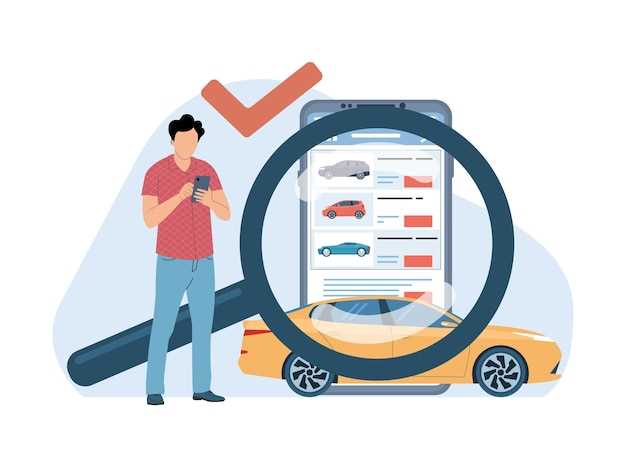
As the automotive market continues to evolve, consumers are increasingly drawn to Certified Pre-Owned (CPO) vehicles. These used cars offer a compelling blend of affordability and reliability, making them an attractive option for many buyers. However, navigating the CPO landscape can be complex, and potential purchasers should be well-informed before making a decision.
Understanding the certification process is crucial. Manufacturers typically establish rigorous standards for their CPO programs, which often include extensive inspections, vehicle history checks, and warranty coverage. Buyers should be aware that not all CPO certifications are created equal; the reputation of the dealership and the specific criteria they follow can greatly impact the quality of the used car.
Additionally, it’s essential for buyers to recognize the differences between CPO vehicles and traditional used cars. While CPO cars tend to come with added benefits such as limited warranty and roadside assistance, the price tag may be higher than that of a non-certified used vehicle. Evaluating the value of these benefits against the upfront cost will help buyers make a more informed choice and ensure that they are getting the best deal in today’s market.
CPO Vehicles: What Buyers Should Know Before Purchase
Certified Pre-Owned (CPO) vehicles are an excellent option for buyers looking for quality used cars that offer additional guarantees compared to typical used vehicles. Understanding the nuances of the CPO market can help you make an informed decision.
Before making a purchase, consider the following key points:
- Certification Criteria: CPO programs vary by manufacturer. Ensure you understand the requirements for a vehicle to be certified. Typically, it must meet age and mileage limits and pass a comprehensive inspection.
- Warranty Coverage: CPO cars often come with extended warranties, adding peace of mind. Review what is covered and the duration of the warranty, including any roadside assistance options.
- Price Comparison: While CPO vehicles are generally more expensive than non-certified used cars, they often provide better value due to their condition and warranty benefits. Compare prices across similar vehicles in the market.
- Vehicle History Report: Request a report that details the car’s previous ownership, accident history, and maintenance records. A good CPO program should provide this information upfront.
- Test Drive: Always test drive a CPO vehicle before purchase. Pay attention to its performance, handling, and comfort to ensure it meets your expectations.
- Negotiation: Just like any used car, CPO vehicles may have room for negotiation. Be prepared to discuss the price based on market conditions and observations from your research.
By taking these factors into account, buyers can navigate the CPO market confidently and find a reliable car that fits their needs and budget.
Understanding CPO Vehicle Benefits and Limitations

Certified Pre-Owned (CPO) vehicles offer a unique combination of benefits and limitations for buyers considering a used car. Choosing a CPO vehicle can provide peace of mind, as these cars typically undergo rigorous inspections and come with extended warranties. This added assurance can make CPO cars more appealing compared to standard used cars, as buyers can trust that the vehicle has been thoroughly vetted for quality and reliability.
One significant benefit of CPO vehicles is the manufacturer-backed warranty. Many CPO programs offer warranties that extend beyond the original coverage, which can include comprehensive protection for engine and drivetrain components. This can result in lower repair costs and enhance the ownership experience, making a CPO vehicle a more reliable option for budget-conscious buyers.
Another advantage is the financing options available for CPO cars. Many dealerships offer competitive financing rates for certified models, allowing buyers to secure a favorable deal compared to traditional used car loans. This can help make the purchase more affordable and attractive for those looking for a dependable vehicle.
However, there are limitations to consider with CPO vehicles. One major drawback is the higher price compared to non-certified used cars. The extra benefits and peace of mind associated with CPO vehicles often come with a premium, which may not fit every buyer’s budget. Thus, those prioritizing cost may lean towards similar vehicles without the CPO certification.
Additionally, the selection of CPO vehicles may be more limited than that of standard used cars, as not all makes and models qualify for certification. Buyers may find fewer options, which can impact their choice and necessitate compromise on specific features or color preferences.
In conclusion, while CPO vehicles present several advantages, including warranty protection and financing options, potential buyers should weigh these benefits against the higher cost and limited selection. Understanding these factors can help in making an informed decision when considering a CPO vehicle purchase.
Key Factors to Consider When Choosing a CPO Vehicle
When selecting a Certified Pre-Owned (CPO) car, several essential factors can significantly influence your buying decision. Understanding these elements ensures you make an informed choice that meets your needs and budget.
First, evaluate the certification program of the manufacturer. Different brands have varying standards for their CPO vehicles, which typically include extensive multipoint inspections and a limited warranty. Check the specifics of what is covered, as well as the length and terms of that warranty, as this will provide you with peace of mind regarding the car’s reliability.
Next, consider the vehicle history. Even though CPO cars are usually newer used vehicles, it’s crucial to review their past. Obtain a vehicle history report that details any accidents, title issues, and service records, which can reveal potential concerns that are not immediately visible.
Inspection and test drives should be done meticulously. Look beyond the exterior and verify the condition of the interior, tires, and engine. A comprehensive test drive can help you assess ride quality, handling, and any unusual noises that might indicate underlying problems.
Compatibility with your driving habits and lifestyle is another vital factor. Assess your daily needs: whether you require more storage space, fuel efficiency, or advanced safety features. Make sure the CPO car fits comfortably within your routine and offers the features you value most.
Finally, consider the total cost of ownership. While the upfront price of a CPO vehicle may seem appealing, be mindful of insurance rates, fuel consumption, and maintenance costs associated with that model. Conduct a thorough cost analysis to ensure the car remains economically viable throughout your ownership.
Navigating the Used Car Market for CPO Vehicles

When considering a Certified Pre-Owned (CPO) vehicle, understanding the used car market is essential for making an informed decision. CPO cars offer a blend of affordability and assurance, typically featuring a comprehensive inspection and warranty. However, buyers must navigate the used market to ensure they are getting genuine value.
Research is Key: Before diving into purchases, conduct thorough research on different CPO programs from various manufacturers. Each brand may offer distinct benefits such as extended warranties, maintenance plans, and road assistance. Understand what is covered under the CPO agreement and compare it across different dealers.
Set a Budget: Establishing a solid budget is crucial when exploring the used car market. Include not only the purchase price but also ongoing costs like insurance, registration, and potential repairs. CPO vehicles can be more expensive than traditional used cars, but the peace of mind they offer may justify the additional cost.
Inspect the Vehicle: Always inspect a CPO vehicle thoroughly. Even though these cars have passed inspections, checking for signs of wear or previous damage is important. Request the vehicle history report to verify mileage and any recorded accidents. A reliable dealership will provide this information willingly.
Test Drive: A test drive is an indispensable step in evaluating a used CPO vehicle. Pay attention to how the car handles, the comfort level, and any unusual noises. This firsthand experience can significantly impact your buying decision.
Negotiate Wisely: Don’t shy away from negotiation. The used car market often leaves room for price discussions. Research fair market value from trusted automotive sources. Use this information to support your bargaining position and ensure you are not overpaying.
Trustworthy Dealerships: Finally, choose a reputable dealership with strong customer reviews. A trustworthy dealership can provide greater transparency regarding the CPO vehicle’s condition and history. Look for certification and partnerships that indicate credibility within the used car market.
By following these guidelines, buyers can confidently navigate the used car market for CPO vehicles, ensuring they make a sound investment.




